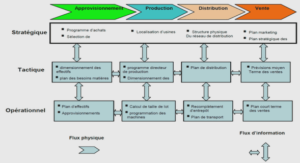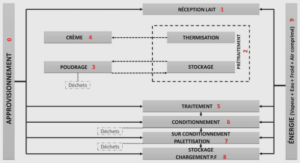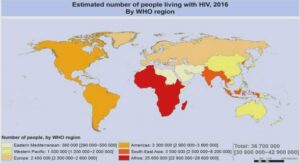ince the day it has been crowned as the world leader, the United States of America has taken upon itself a huge responsibility of its own choice to rebuild the world and save it from self destruction. However, the methods that America has chosen to handle global issues have gained the country criticism more than praise and more enemies than allies. Long it has been criticized for not being genuine towards the rest of the world, all of which raises a huge animosity against it. Thus, the ninth eleventh attacks, as it has been generally recognized, are nothing but a reaction to US foreign policy.
These attacks have been widely identified as the most horrific events in the U.S. history after the Pearl Harbor attacks. If anything both of the incidents have proved is the vulnerability of the American National Security, destroying the idea that the United States is untouchable and any sense of security Americans used to have.
The attacks have been immediately defined as an act of war against the civilized world, thus everyone is concerned to fight the evil that is threatening freedom and peace. In Kofi A. Annan‘s words, ―this was an attack on all humanity, and all humanity has a stake in defeating the forces behind it‖ . Since then, all of the United States and its allies have join forces for one purpose that is to put an end to terrorism. From an American standpoint the ― goal will be reached when Americans and other civilized people around the world can lead their lives free of fear from terrorist attacks .
From the moment America has opened up to the world, breaking out of a long period of isolation, US foreign policy makers set off in a grand mission for the world‘s purification; first, from German Nazism then from Communism. Nowadays, the United States is struggling with atypical opponent that has been named ―Terrorism‖; one of the last adversaries that America has been engaged with in a war, since the Cold War, internationally speaking. However, the main idea to be tackled in the first chapter is that America‘s War on Terrorism; just like the one against Nazism or Communism, is nothing but a cover up for the continuity of U.S. imperialism and the protection of its national interests. And, thus, the idea that the 9/11 has changed everything based on which America had to act, at a global stage, in response to such threats is totally deceptive; therefore, for better understanding of the post 9/11 U.S. actions, a study of U.S. foreign policy is required both before and after the attacks of September the eleventh.
Definition of U.S. Imperialism:
Based on Encyclopedia of American Foreign Policy, Imperialism is generally defined as the compulsory expansion of a country over areas beyond that country‘s borders. Sometimes, it is recognized as the impact of a nation abroad; other times, it is seen as an overseas economical exploitation. But overall, ―the essential element is that one society must in some way impose itself upon another in a continuing unequal relationship. In case of American imperialism these ways were determined by security, economy, racial classification, and other determinants.
In their early days, Americans concentrated on expansion that involved the extension of a society over less or none peopled areas but not taking over other societies and destroying them. However, ―Americans‘ constant assertions that they were peopling an empty continent contained the seeds of hypocrisy.‖ The result of their early expansions and settlements was the destruction of existed societies marked by the death of millions of Native Americans. Despite of the similarities between expansionist and imperialist America, in the beginning, expansion and territories annexation were not defined as imperialism. The general idea is that ―American expansionism dated from the beginning of the national experience, while its evolution into true imperialism occurred only in the later nineteenth century.‖ But, in fact, there is no difference between these two but in vocabulary. Even at that early stage, ―There were, of course, common features in the earlier expansion and later imperialism of the United States. Chief among these was a strong sense of national mission and special destiny, a general confidence in the unique superiority of American institutions, a belief in the inequality of races and peoples, and the very habit of expansion itself .
To justify U.S. imperialism, the promoters of expansionism focused on three points to get control over overseas populated areas. The first one is for the sake of security, claiming that it is the only effective way for a nation to protect itself from external threats; Native Americans are believed to be the first ones who have been victims of the continental spanning in the name of security. Moreover, ―security was also the rationale for a ring of far-flung military bases and later, of radar stations beyond the country‘s borders. The second one was for the promotion of American values of liberty and democracy to the less fortunate people and to civilize the world. The third point is the racist view justification, suggesting that the nonwhite races are inferior to them thus they ―had to be confined, conquered or at least dominated.‖ All of which have been achieved through ―war, purchase or negotiation‖. U.S. foreign policy makers have carried out their expansionism plans ―both formally (through colonization, annexation and military occupation) and informally (through military threats, economic domination and political subversion) .
From another perspective, since the Puritan days, the U.S. expansionism ideas have been reinforced through the belief of exceptionalism. Although, the analysis of U.S. foreign policy from this standpoint is not well taken from scholars and it is generally neglected in this area of studies. However, the belief in ―American exceptionalism‖ had and always will have a huge impact on shaping U.S. foreign policy. That is to say, it is determined by the fundamental beliefs that American originated about themselves and the whole world. Meaning, despite of other solid determinants such as, the protection of U.S. territories, the opening of international markets, or the private goals of its policy makers, yet the dominance of the rhetorical belief have been proved and acknowledged to be one of the most essential contributions to the underlying structure of the American politics, providing its policymakers both of the exact justification to deal with certain issues and the explanatory framework for the public to understand these matters.
American exceptionalism is basically driven by two mainstreams that have always been active in America‘s international relations. According to Encyclopedia of American foreign policy, the first one is the exemplary stream, as mirrored in images such as the ―city upon a hill‖, in which America sees itself as a role model, setting an example to the rest of the world to follow. Whereas, the second one has strongly overshadowing the former, represent the U.S.A. as a missionary nation, reflecting ideas of ―imperialism‖, ―internationalism‖, and ―the leader of the free world‖. According to the first strand, America sees itself as an extraordinary country that outshined all other nations because of its divinely ideals, based on which global reformation have been set up for the ―betterment of humankind‖. However, the missionaries believe that people everywhere want to Americanize with the exception of a small category who does not realize that yet. Consequently, Americans attempts of imposing their style of life on others; many of whom highly valued other traditions but the American ones, is doomed to fail.
The belief of Americans in their uniqueness and that of their country; ―the site of the terrestrial working-out of the will of God,‖ based on which the extension of American territories have been justified, fuel their eager to spread God‘s words and fulfill its will on earth for the benefits of humanity .
General Introduction |





